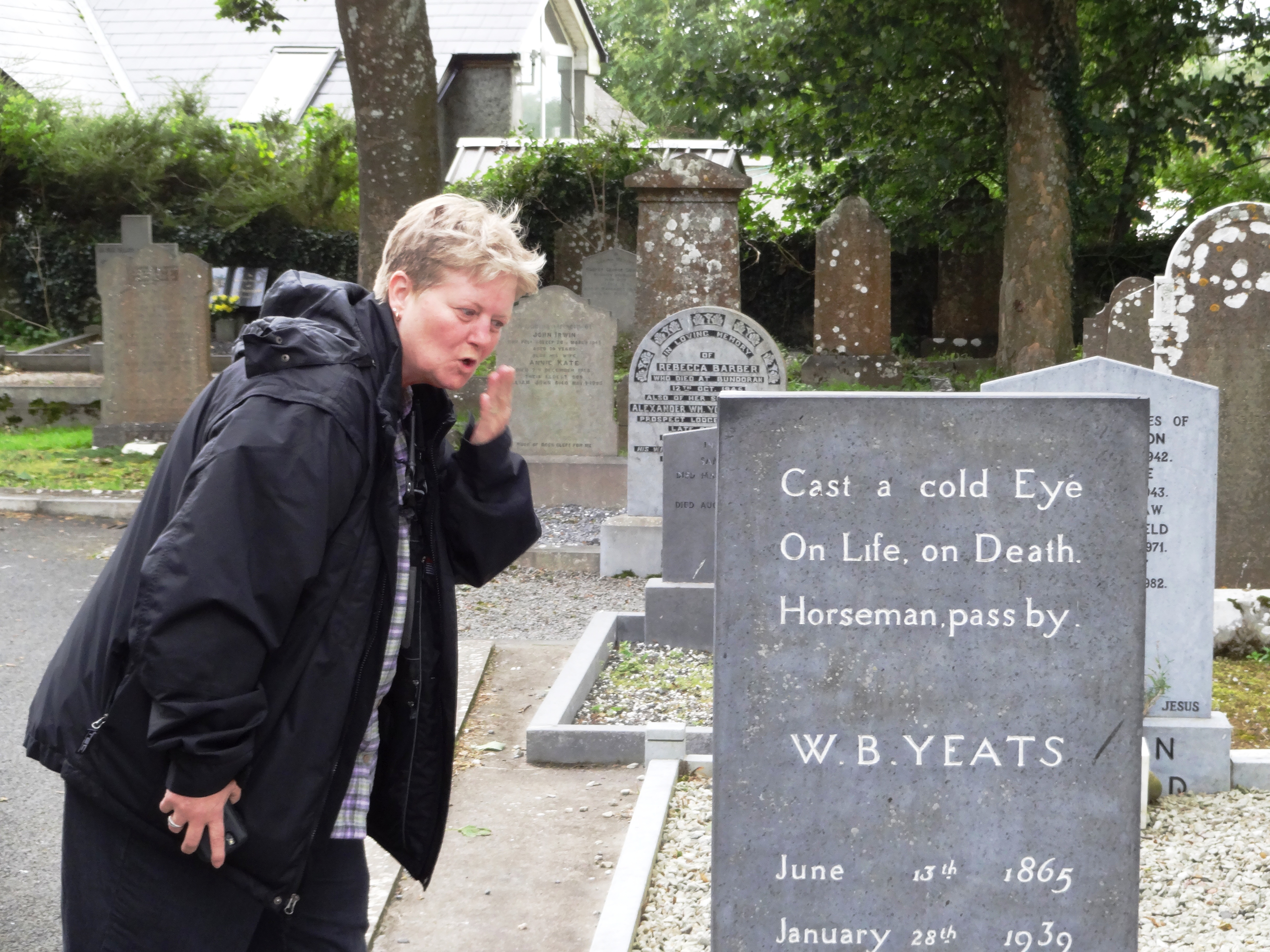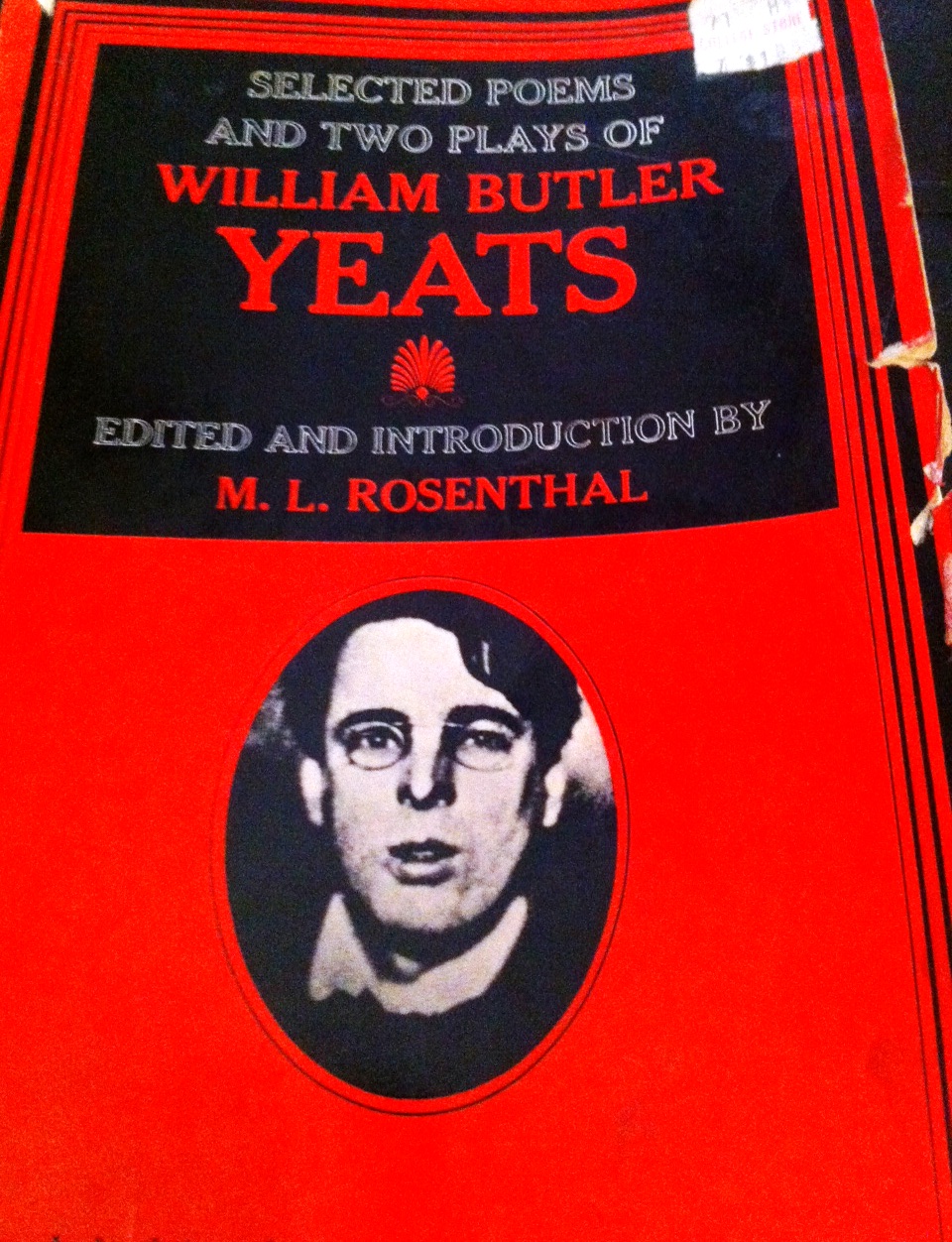 “Cast a cold eye on life, on death. Horseman, pass by.” This is the famous epitaph on the grave of my favorite poet William Butler Yeats, 1856-1939. A few months ago my friends Karen and Lori visited Ireland, and part of their tour included paying homage to the great Irish poet and playwright. Knowing how much I love Yeats, and being the sweetlings they are, Karen and Lori made sure to take some good pictures for me and leave a tidbit of my energy in Ireland in honor of Yeats. This picture is Karen blowing a kiss for me to Yeats. It’s only fitting, for the poet himself, and also because much of my family heritage and Kelly’s in Wytchfae Runes is from that area. Thank you, Karen and Lori!
“Cast a cold eye on life, on death. Horseman, pass by.” This is the famous epitaph on the grave of my favorite poet William Butler Yeats, 1856-1939. A few months ago my friends Karen and Lori visited Ireland, and part of their tour included paying homage to the great Irish poet and playwright. Knowing how much I love Yeats, and being the sweetlings they are, Karen and Lori made sure to take some good pictures for me and leave a tidbit of my energy in Ireland in honor of Yeats. This picture is Karen blowing a kiss for me to Yeats. It’s only fitting, for the poet himself, and also because much of my family heritage and Kelly’s in Wytchfae Runes is from that area. Thank you, Karen and Lori!
Today’s post and two subsequent ones are dedicated to Yeats, Karen, and Lori. They had a blast in Ireland, and I understand quite a few pints were raised. Rightly so.
In today’s post we’ll take a peek at Yeats’ poetry. It ranges from the exquisitely lyrical to verses with sparser, harsher imagery. In his younger years he sometimes wrote from the stance of a wise old man and, when he had grown old, his poems took on the raw physicality of a young man’s view. His earliest poems are lush and draw upon the works of two other favorite poets of mine, Percy Bysshe Shelley and Edmund Spenser. The poems of his middle period are more masculine and forceful. His later poems are imbued with the mysticism and occultism that informed much of his life. Celtic mythology and Irish folk tales are interwoven throughout his works, and Yeats did much to revive and preserve the old stories. Lucky for us!
One of my favorites of his poems starts out, “Who will go drive with Fergus now, and pierce the deep wood’s woven shade?” Another is about an ancient Irish warrior: “Cuchulain stirred, stared on the horses of the sea, and heard the cars of battle and his own name cried; and fought with the invulnerable tide.” Fergus has the “dreaming wisdom” of poetic imagination, mystic knowledge, and the old ways, and Cuchulain is the man of action who takes charge and gets things done in the world. The dichotomy is prominent in Yeats’ poetry. (Selected Poems and Two Plays of William Butler Yeats, edited and with an introduction by by M.L. Rosenthal, the Macmillian Company, 1962– yes, this is my old college book!) 
See you next week for another installment of Karen and Lori’s Irish journey as pertains to Yeats.